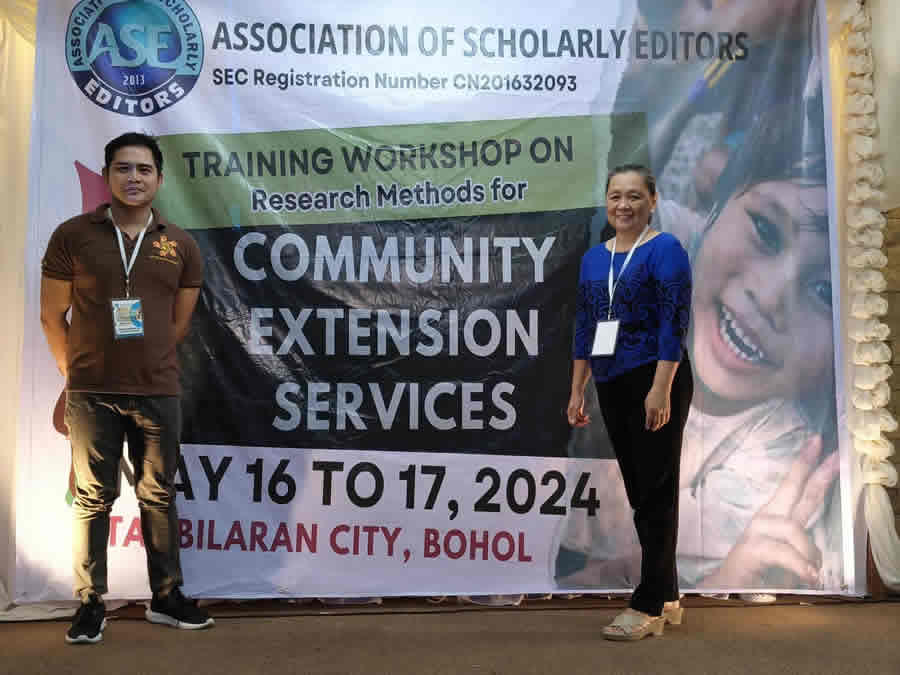By Prof. Sarex Dalida Dipol, Jr.
CESL Center Acting Director Prof. Sarex Dalida Dipol, Jr. (left) and URC Acting Director Dr. Evelyn Grace Ayson (right) participated in AI-Enhanced Training Workshop on Research Methods for Community Extension Services.
On May 16 and 17, 2024, in Tagbilaran City, Bohol, the University Directors of the University Research Center and the Community Engagement and Service-Learning Center joined an innovative seminar and training workshop focused on research methods for community extension programs and services. This seminar and training workshop integrated cutting-edge Artificial Intelligence (AI) technologies.
Furthermore, the workshop aimed to equip tertiary faculty members with advanced research skills customized to community extension services, fostering their ability to address and provide necessary and appropriate solutions faced by the university’s adopted and recipient communities. The use of AI in the seminar gave a forward-thinking perspective. It demonstrated how technology can augment traditional research practices and guide more effective and efficient community interventions.
The workshop highlights the following: First, in AI in Research Methodologies, participants were introduced to numerous AI tools that can speed up data collection, analysis, and interpretation procedures. Second, during the Practical Training Session, participants are given enough time to practice using AI technologies in their community extension and research projects. To provide a realistic experience and ensure that participants are comfortable and competent in applying these AI tools in their community extension programs and engagements. Lastly, the focus on community impact was the workshop’s core goal: to improve the quality and impact of extension services and programs on the adopted communities. Using AI technologies, faculty researchers can gather more comprehensive data, identify needs and patterns more quickly, and develop effective intervention programs and services for the target communities.
This attendance is in accordance with Republic Act No. 7722, also known as the “Higher Education Act of 1994,” which states that the country’s higher education institutions (HEIs) have three (3) mandated functions: instruction, research, and extension.

